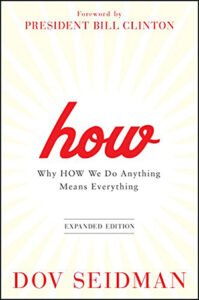|
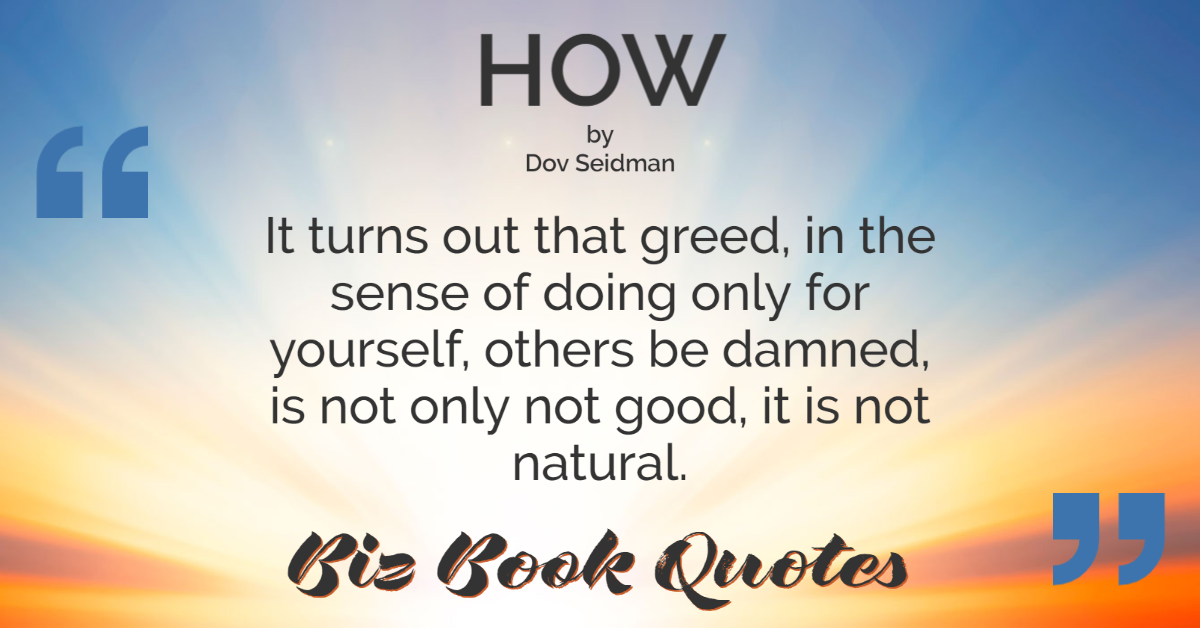
|
How:
It turns out that greed, in the sense of doing only for yourself, others be damned, is not only not good, it is not natural.
|
66 |
|
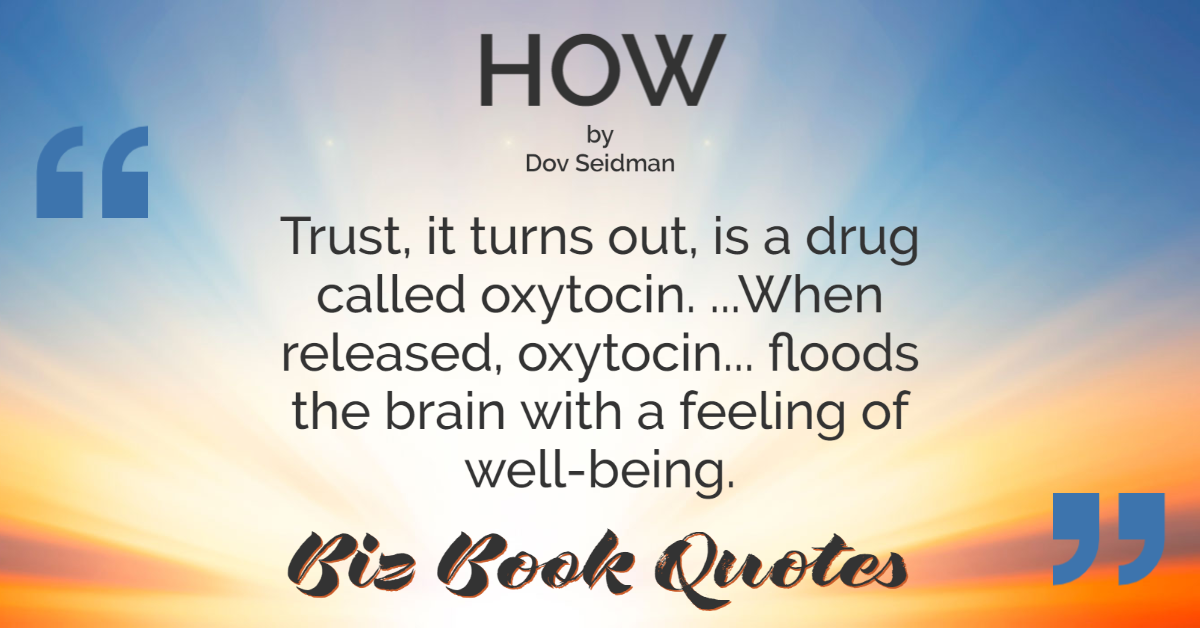
|
How:
Trust, it turns out, is a drug called oxytocin. …When released, oxytocin… floods the brain with a feeling of well-being.
|
68 |
|
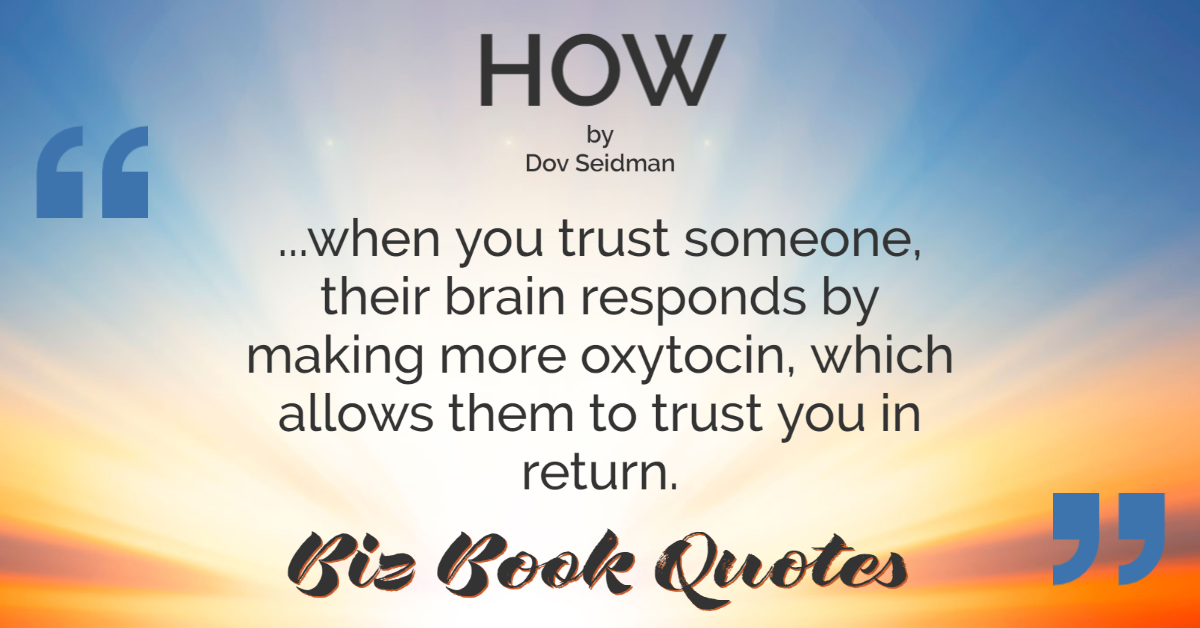
|
How:
…when you trust someone, their brain responds by making more oxytocin, which allows them to trust you in return.
|
71 |
|

|
How:
We are on some level, it seems, hardwired to seek connections with others, to build biological networks to achieve greater personal gain.
|
71 |
|

|
How:
What if humankind’s greatest strength is not the size of our muscles but our seemingly irrational embrace of connection and cooperation – our ability to form societies of like-minded individuals.
|
72 |
|
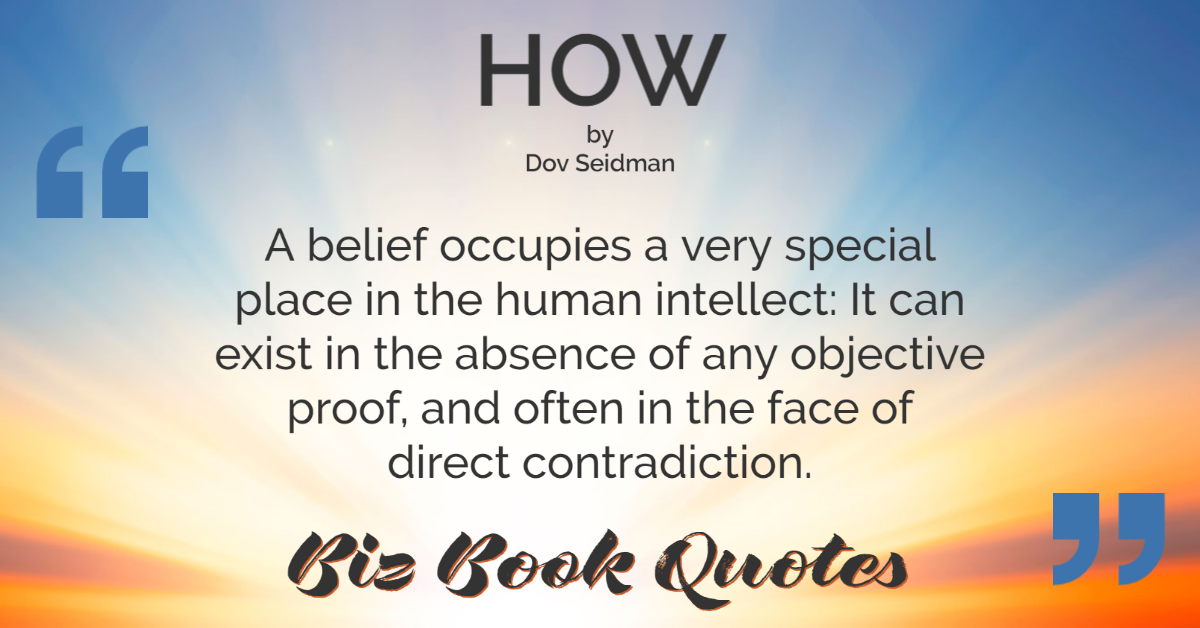
|
How:
A belief occupies a very special place in the human intellect: It can exist in the absence of any objective proof, and often in the face of direct contradiction.
|
76 |
|
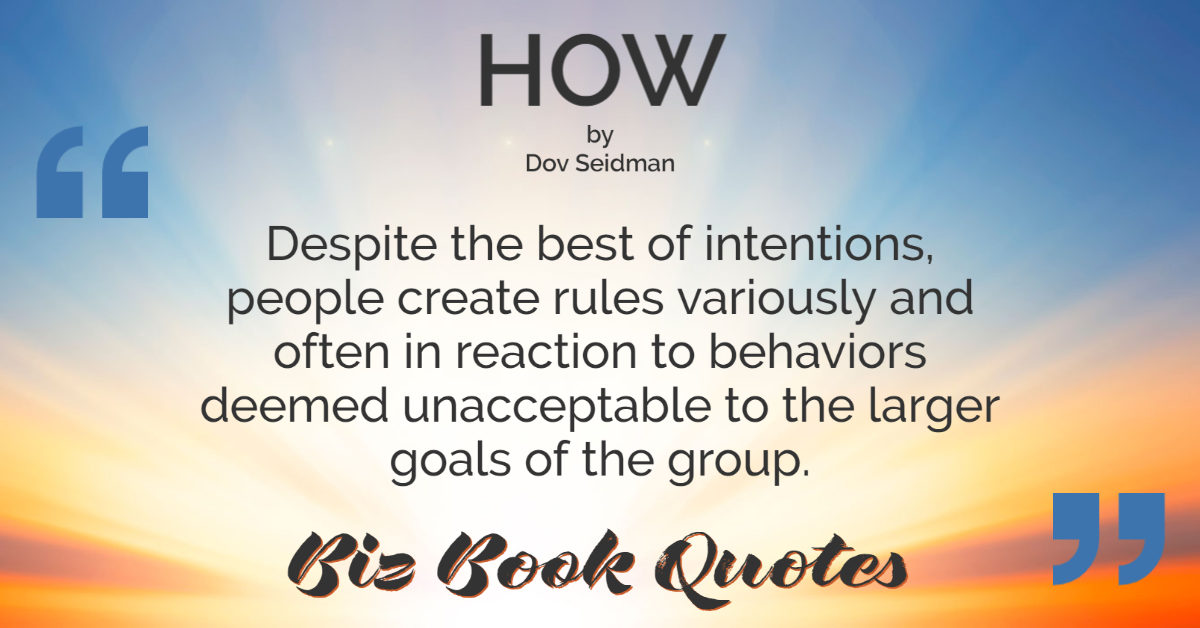
|
How:
Despite the best of intentions, people create rules variously and often in reaction to behaviors deemed unacceptable to the larger goals of the group.
|
85 |
|

|
How:
Rules don’t govern human progress, they govern the human past.
|
86 |
|
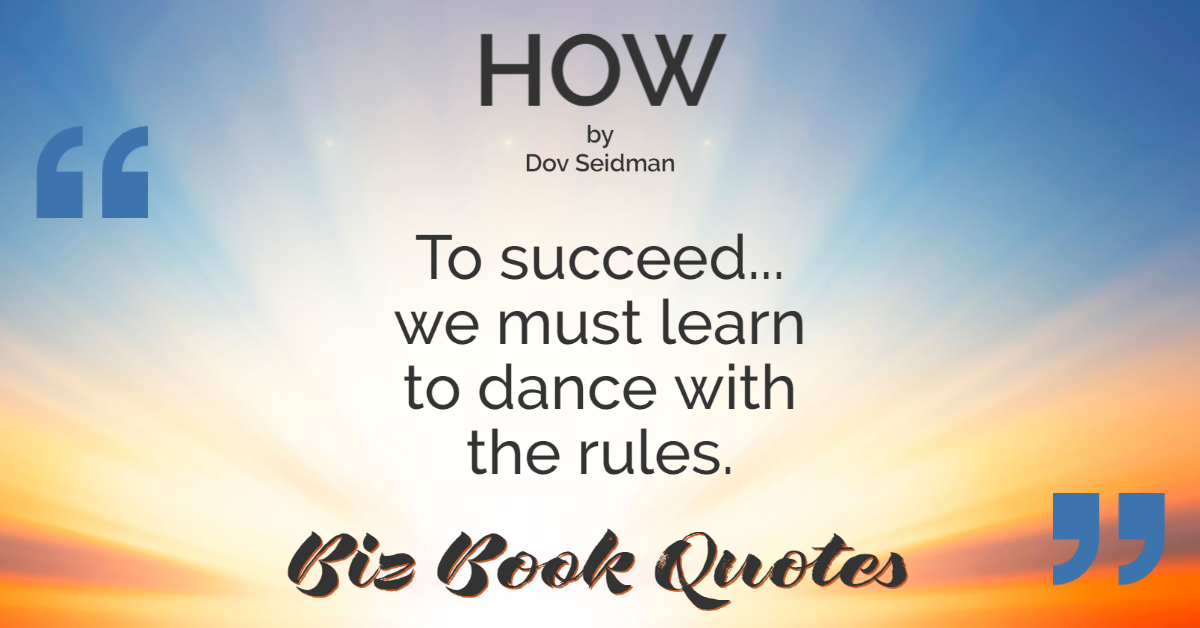
|
How:
To succeed… we must learn to dance with the rules.
|
86 |
|

|
How:
We overrespect rules, which leads us into a quagmire where all our actions get mucked up in the spectrum of legal permissibility.
|
87 |
